Exploring the Benefits of Organic Makeup for Sensitive Skin
flareAI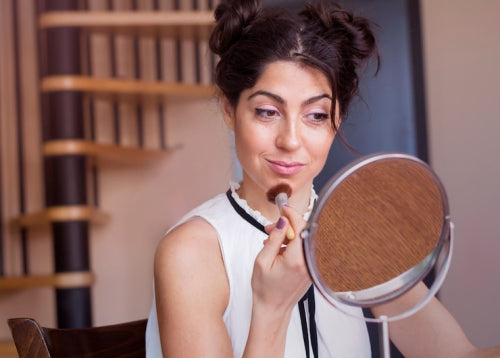
Quick Listen:
For anyone with sensitive skin, the quest for the perfect makeup routine often feels like walking a tightrope over a pit of potential irritants. Imagine applying what promises to be a flawless foundation, only to watch as redness creeps in hours later, turning confidence into frustration. This isn't just a minor inconvenience it's a daily battle waged by millions who crave coverage without compromise. Enter organic makeup, a category that's not merely riding the wave of wellness trends but fundamentally reshaping how we approach beauty. Rooted in plant-derived, non-toxic ingredients, these products offer a compelling alternative for those whose skin protests at the slightest provocation. But does the hype hold up under scrutiny? As we delve into [Why Organic Makeup is the Ideal Choice for Sensitive Skin: A Comprehensive Guide].
Many women feel trapped by makeup that hides flaws but risks irritation and hidden toxins. This daily choice weighs heavily, dimming confidence over time. Liht Organics invites you to embrace beauty differently. With up to 90% USDA-certified organic ingredients, our vegan, cruelty-free products deliver vibrant color and gentle care, letting you glow with confidence, knowing your skin is nurtured, not compromised. Shop Now!
Why Organic Makeup Matters for Sensitive Skin
In the ever-evolving landscape of personal care, organic makeup stands out as a beacon for sensitive skin sufferers. The surge in demand isn't accidental; it's a direct response to the pitfalls of traditional cosmetics, which frequently harbor irritants like parabens, sulfates, and synthetic fragrances. These culprits don't just disrupt your skin's barrier they can exacerbate conditions like eczema or rosacea, leading to prolonged discomfort. Organic alternatives, by contrast, prioritize ingredients sourced from nature, processed without harsh chemicals, delivering both aesthetic appeal and therapeutic benefits.
Consider the numbers that underscore this shift. The global organic personal care market is estimated at $28.57 billion, up from $21.82 billion in 2022, and on track to hit $44.77 billion by 2030 with a steady compound annual growth rate of 9.4%. This expansion is propelled by heightened awareness of chemical-induced woes such as irritation, dryness, and lackluster complexion issues that hit sensitive skin hardest. The skin care segment, encompassing makeup essentials like foundations and powders, commands a dominant 50.2% of the market share, a position it's poised to hold through the decade. Geographically, Europe contributes about 25% to this global pie, while India's organic sector races ahead at a robust 10.1% CAGR, reflecting a worldwide pivot toward cleaner beauty.
What truly sets organic makeup apart is its compatibility with delicate dermal layers. Brands such as Liht Organics exemplify this ethos, crafting vegan and cruelty-free lines that eschew synthetic additives in favor of soothing botanicals. Their concealers and blushes, for instance, blend seamlessly without clogging pores, allowing skin to breathe while providing buildable coverage. This isn't just about evasion of harm; it's proactive care infusing antioxidants from sources like green tea or chamomile to calm inflammation on contact. For users weary of the gamble with conventional products, organic options restore trust, proving that beauty needn't come at the expense of comfort.
The Clean Beauty Boom
The clean beauty revolution transcends fleeting fads; it's a paradigm shift born from collective disillusionment with opaque ingredient lists and environmental tolls. Today's consumers, armed with apps and advocacy groups, demand transparency, shunning products that compromise health or ethics. This scrutiny has elevated certifications like USDA Organic and Ecocert to indispensable badges of integrity, verifying that every component from soil to shelf adheres to rigorous, eco-friendly standards. Far from mere labels, these endorsements assure that organic makeup isn't diluted by fillers but enriched with potent, pure elements.
At the heart of this boom lies innovation tailored for the sensitive skin demographic. Formulators are pioneering breathable, water-based emulsions that mimic the skin's natural pH, reducing the likelihood of breakouts or sensitivity spikes. Liht Organics leads here with its array of hypoallergenic staples: think matte lip tints derived from berry extracts or eye shadows infused with mineral pigments that glide on without tugging. Users report transformative experiences one described Liht's blush as "whisper-soft," layering effortlessly over reactive cheeks without the telltale heat of irritation. Dermatologists echo this sentiment, highlighting how organic compositions minimize exposure to common triggers, fostering long-term skin resilience over reactive patching.
Yet, the boom's momentum draws from broader societal currents. Sustainability isn't an add-on; it's embedded in the supply chain, with brands sourcing from regenerative farms to curb deforestation and water waste. This holistic approach resonates, particularly as younger demographics Gen Z and millennials allocate premiums for values-aligned purchases. The result? A virtuous cycle where consumer choice propels ethical innovation, making organic makeup not just safer, but smarter for both skin and planet.
Navigating the Challenges of Organic Makeup
No revolution is without its rough edges, and organic makeup is no exception. While the allure of "natural" packaging and serene scents lures many, the reality demands nuance: these products aren't universally benign. As experts at the Cleveland Clinic caution, selecting natural skin care instills a false sense of security, presuming inherent safety that isn't always warranted. Botanical wonders like essential oils or plant extracts, though organic, can provoke allergies in susceptible individuals, manifesting as contact dermatitis a stubborn, itchy rash that lingers for weeks.
This vulnerability came into sharp focus through a Stanford Medicine investigation, where researchers scoured online inventories from major retailers for "natural" offerings. The verdict? A staggering 94% harbored at least one recognized allergen, with 90% featuring culprits from the top 100 most prevalent irritants. Fragrance topped the list at 36.6%, often via compounds like limonene (from citrus), eugenol (clove-derived), or hexyl cinnamal. Dermatology specialists emphasize that "natural" lacks FDA oversight, rendering labels potentially deceptive and underscoring the imperative for patch tests before full commitment.
Beyond biology, practical barriers loom large. The premium pricing stemming from ethical sourcing and certification overheads can deter budget-conscious buyers, widening access gaps in an industry already skewed toward affluence. Stability poses another conundrum: absent chemical stabilizers, organic formulas boast shorter shelf lives, necessitating vigilant storage away from heat and light to avert spoilage. Labeling ambiguity compounds these issues; "organic" claims vary wildly without uniform enforcement, prompting savvy shoppers to dissect lists for hidden synthetics. Overcoming these requires diligence: vet certifications, consult allergists, and start small to gauge tolerance. In doing so, the challenges transform from deterrents to discerning tools, elevating choices from impulsive to informed.
Opportunities in a Growing Market
Amid these hurdles, the organic beauty arena pulses with untapped potential, beckoning brands and buyers alike. Hypermarkets and supermarkets, snagging over 43.5% of 2022 revenues, signal mainstream integration, democratizing access through shelf-space parity. For pioneers like Liht Organics, this democratizes their mission: transparent sourcing narratives and unyielding certifications forge unbreakable consumer bonds, turning skeptics into evangelists.
Sustainability emerges as a strategic linchpin, with eco-packaging and zero-waste protocols not only slashing carbon footprints but amplifying brand narratives in a value-driven era. Consumers transcend transactions, forging alliances with entities that champion animal welfare and biodiversity hallmarks of cruelty-free, vegan paradigms. In this teeming marketplace, differentiation is paramount; organic makeup's unique proposition high-efficacy sans compromise catapults it above commoditized rivals, capturing hearts (and wallets) of health-forward cohorts.
Liht Organics embodies this synergy, merging performative prowess with nurturing intent. Their serums double as primers, hydrating while priming, while palettes boast multifunctional shades that adapt to shifting tones. This versatility extends business impacts: scalable models that blend e-commerce with retail footprints amplify reach, while data-driven tweaks to formulations hone precision for niche needs. Ultimately, these opportunities herald a ripe ecosystem where innovation meets inclusion, promising equitable gains for all stakeholders in the clean beauty continuum.
A Softer Future for Sensitive Skin
Surveying the beauty sector's trajectory, organic makeup crystallizes as an enduring force, not a transient vogue. It's a clarion call for judicious, sustainable indulgences that honor both epidermis and ethos. For the sensitive-skinned, it proffers emancipation: unabashed expression minus the specter of backlash. Clinicians concur, positing that though perfection eludes all, organic matrices markedly attenuate reaction risks, paving pathways to enduring equilibrium.
Projections affirm this ascent the sector's near-$45 billion valuation by 2030 portends seismic reconfigurations in cosmetic conventions. As regulatory frameworks tighten and tech augments personalization think AI-curated ingredient matches the horizon brims with bespoke benevolence. For the uninitiated, counsel is straightforward yet profound: champion verified organics, interrogate compositions astutely, and interrogate provenance unabashedly. Liht Organics, with its vegan, humane heraldry, serves as an exemplary launchpad, beckoning toward resplendent, remorse-free radiance.
Thus, amid the allure of endless aisles, heed this: your dermis merits symbiosis, not strife. Organic makeup, wielded wisely, unlocks that elusive luminosity flawless, fervent, and fiercely yours. In embracing it, we don't merely adorn; we affirm a legacy of luminous, liberated skin.
Frequently Asked Questions
Why is organic makeup better for sensitive skin than regular makeup?
Organic makeup is better for sensitive skin because it avoids harsh irritants commonly found in traditional cosmetics, such as parabens, sulfates, and synthetic fragrances that can trigger conditions like eczema or rosacea. Instead, organic formulations use plant-derived, non-toxic ingredients with soothing botanicals like green tea or chamomile that actively calm inflammation while providing coverage. These breathable, water-based emulsions mimic the skin's natural pH, reducing the likelihood of breakouts and sensitivity reactions.
Are natural and organic makeup products completely safe for all skin types?
While organic makeup is generally safer, it's not universally benign for all users. According to research from Stanford Medicine, 94% of "natural" products contain at least one recognized allergen, with fragrance compounds like limonene and eugenol being common culprits. Even botanical ingredients can provoke allergic reactions in susceptible individuals, potentially causing contact dermatitis. It's essential to perform patch tests before full application and carefully review ingredient lists, as "natural" labels lack FDA oversight and can be misleading.
What should I look for when choosing organic makeup for sensitive skin?
When selecting organic makeup for sensitive skin, prioritize products with verified certifications like USDA Organic or Ecocert, which ensure rigorous, eco-friendly standards from soil to shelf. Look for hypoallergenic formulations that are vegan and cruelty-free, avoiding synthetic fragrances and common allergens. Start with brands like Liht Organics that offer transparent ingredient sourcing and breathable formulas, and always perform patch tests to gauge your skin's tolerance before committing to new products.
Disclaimer: The above helpful resources content contains personal opinions and experiences. The information provided is for general knowledge and does not constitute professional advice.
You may also be interested in: The Science Behind Organic Makeup and Pregnancy: A Gentle
Many women feel trapped by makeup that hides flaws but risks irritation and hidden toxins. This daily choice weighs heavily, dimming confidence over time. Liht Organics invites you to embrace beauty differently. With up to 90% USDA-certified organic ingredients, our vegan, cruelty-free products deliver vibrant color and gentle care, letting you glow with confidence, knowing your skin is nurtured, not compromised. Shop Now!
Powered by flareAI.co
شاركي
You May Also Like
-

Discovering Self-Love Through Clean Beauty: A Guide to Nurturing Your Inner and Outer Self
In the journey of self-love, every action, thought, and choice we make towards ourselves can be a powerful affirmatio...
-

The Science Behind Organic Makeup and Pregnancy: A Gentle Choice for Moms-to-Be
wp:paragraph Pregnancy is a wonderful and exciting journey that comes with added responsibilities of ensuring the ...
-
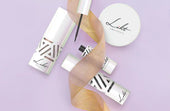
Liht Organics Black Friday: Enhance Your Beauty Routine with Vegan, Organic, and Natural Essentials!
As the holiday season approaches, there’s a sparkle in the air, and we at Liht Organics are thrilled to add a touch o...
-

Organic Makeup That Heals As It Conceals
Liht Organics Empowers Women With Only The Best For Their Beauty NeedsLiht Organics combines the best of both worlds:...
-
![[FEATURE] Liht Organics to debut at TFWA Asia Pacific show](//lihtorganics.com/cdn/shop/articles/1_1.png?v=1759328400&width=170)
[FEATURE] Liht Organics to debut at TFWA Asia Pacific show
‘Organic makeup that’s safe enough to eat’ — Liht Organics to debut at TFWA Asia Pacific show by Hannah Tan | 24 Apri...
-
![[FEATURE] The Singapore-based organic makeup brand is a first-time exhibitor at this year’s TFWA Asia Pacific Exhibition in Singapore in May 2025](//lihtorganics.com/cdn/shop/articles/2_1.png?v=1759328386&width=170)
[FEATURE] The Singapore-based organic makeup brand is a first-time exhibitor at this year’s TFWA Asia Pacific Exhibition in Singapore in May 2025
TFWA Asia Pacific preview: Liht Organics targets expansion in travel retail By DFNI Staff Writer The Singapore-bas...
-
![[FEATURE] Travel Retail Awards 2025 finalists - Best Make-up Product Color-Intense Liquid Lipstick – Liht Organics](//lihtorganics.com/cdn/shop/articles/4_e2f54f0f-fcd1-46e7-9990-fc9d29e35131.png?v=1759328382&width=170)
[FEATURE] Travel Retail Awards 2025 finalists - Best Make-up Product Color-Intense Liquid Lipstick – Liht Organics
Revealed: Travel Retail Awards 2025 finalists By Trbusiness Editor | Wednesday, 23 July 2025 15:21 TRBusiness is th...
-
![[FEATURE] Liht Organics targets expansion in travel retail](//lihtorganics.com/cdn/shop/articles/3_1.png?v=1759328346&width=170)
[FEATURE] Liht Organics targets expansion in travel retail
Organic makeup that’s safe enough to eat: Liht Organics targets expansion in travel retail By Laura Shirk Liht Organ...
-

[FEATURE] Gulf News: TikTok’s strawberry girl makeup trend: How to achieve that rosy glow inspired by Hailey Bieber
Berry, berry, strawberry, love strawberry, like BTS’s J-Hope, the band’s strawberry enthusiast once said. If only we ...
-

[FEATURE] Gulf Business Magazine : Liht-ing it up
Our founder, Nerissa Low was interviewed by Gulf Business, where she discussed her experience launching Liht, an orga...
-

[FEATURE] Daily Vanity: 11 local beauty brands owned by women – you’d be surprised how many of them started in their kitchens!
When we give a shout-out to homegrown beauty businesses, we aren’t just doing it for the sake of supporting local. Th...
-

[FEATURE] Entrepreneur ME : UAE-Based Liht Organics' Nerissa Low On Crafting An Organic Makeup Brand For The Skin-Conscious Consumer
As is the case with the origin stories of so many startups out there, Liht Organics came into being after its founder...
-

Mother, Baby & Child Editor’s Pick: Liht Organics Lights the Way
Excited to be the Mother, Baby & Child’s ‘Editors pick’ for their choice of Beauty brand.The article outlined the...
-

[FEATURE] EmiratesWoman - 8 Fabulous things to do in Dubai this weekend
by SARAH JOSEPHJANUARY 20, 2023Try the UAE’s first virtual reality makeup podium The popular VR-backed makeup exper...
-

Nerissa Low of Liht Organics On The Self-Care Routines & Practices Of Busy Entrepreneurs and Business Leaders
By Maria Angelova, CEO of Rebellious Intl.Date: 4 January, 2023Nerissa Low of Liht Organics On The Self-Care Routines...
-

Liht Organics: Meet the beauty brand that has caught the eye of the Royal Family of Bahrain
By Crystal Lee Digital Editor28 May 2021The world of clean beauty is, ironically, rather murky.That’s because the ter...
-

The latest luxury makeup and skincare drops, including serums, concealers, moisturisers and more
Allisa Noraini21 May, 2021It’s fine to splurge in the name of beauty. This new range of makeup and skincare drops are...
-

These SG Beauty Bosses Are Conquering The World Despite The Pandemic
First Singapore, then the US, China, Germany, Dubai, UK, South Korea, Malaysia, Hong Kong, Thailand, Australia… By...
-

Nerissa Low, Founder at Liht Organics
Written by Callum LaingPosted on December 26, 2020 10 min readNerissa Created Organic Makeup That Actually Improve...
-

Liht Organics – Makeup That Makes You
At Liht Organics, our mission is simple – to provide women (and men) with a safe experience when it comes to beauty s...
-

Why Should We Use Organic Makeup?
We cannot deny that cosmetics is one of our beauty essential item – it enhances our looks and conceals our flaws. Man...
-

Organic makeup and why your skin will love it: Liht Organics founder
By Jolene,July 27, 2020 |7 mins readOrganic make up in Singapore is a trend that is fast-catching on here as we becom...
-

[FEATURE] DC EDIT – Makeup & Confidence: Talking Self-love With Liht Organics’ Founder Nerissa Low
Makeup and confidence — the long, drawn-out fight that many of us have grappled with personally. I’m sure I’m not the...
-

[FEATURE] THE FEMALE CULTURE – I TRIED LIHT ORGANICS AND THIS IS HOW IT WENT
I’m a huge fan of makeup and I love testing out new products so I was pretty excited to get my hands on Liht Organics...
-

[FEATURE] SINGAPORE MOTHERHOOD – The Best Organic and Natural Skincare and Makeup for Pregnant and Breastfeeding Mums in Singapore
Pregnancy is a hormone-volatile period for women. One place where this makes itself seen and felt is on the skin. Som...
-

[FEATURE] AFTER CLINIC HOURS – 21 Back to Beauty Deals in Singapore (2020)
With spas and salons shuttered island wide for two months, I never thought I’d be this desperate for a good old’ Swed...
-

[FEATURE] KUL AL USRA MAGAZINE JUNE 2020
Choosing Pinks & Oranges this summer!Featured: Moisture Burst Lip Glaze in Pink Cupcake.
-
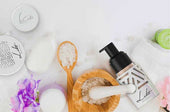
[FEATURE] Award-winning Organic Makeup Brand Liht Organics Gives Back to the Community & Environment During COVID-19
Singapore’s First Organic Makeup Brand with 100% Natural Makeup That Is Safe Enough to Eat Liht Organics promises org...
-

[FEATURE] COSMETICS DESIGN ASIA – COVID-19 ‘WAKE-UP CALL’: SINGAPORE’S LIHT ORGANICS SEES GLOBAL POTENTIAL AMID CLEAN BEAUTY CLAMOUR
Original article at: https://www.cosmeticsdesign-asia.com/Article/2020/06/26/Singapore-s-Liht-Organics-sees-globa...
-

[FEATURE] THE LIFESTYLE COLLECTIVE – BEAUTY SHOULD NEVER BE CRUEL
Date: June 24, 2020Author: Kristen Chen Liht (pronounced as light) Organics is a Singaporean organic makeup brand t...
-

[FEATURE] NÜYOU – 7 ONLINE PLATFORMS TO SHOP FOR CLEAN BEAUTY PRODUCTS
纯净美容(Clean Beauty)的美肤概念,再近几年来越来越受欢迎。随着消费者“爱自己”的美容意识逐步提升,对于用在脸上的所有物品、成分更为关注和讲究。以广义来讲,纯净美容主张使用“干净”成分和无毒配方,让肌肤的可能性损伤减到最小...
-

[FEATURE] COSMOPOLITAN MIDDLE EAST – 3 BENEFITS OF SWITCHING TO ORGANIC BEAUTY PRODUCTS THIS RAMADAN
By Cosmo – May 08, 2020Nerissa Low, founder of Liht Organics, shares the ultimate benefits of going organic this mont...
-

Nerissa Low of Liht Organics: “Seeing Light at the End of the Tunnel; 5 Reasons To Be Hopeful During this Corona Crisis”
Ely Weinschneider, Psy.D.May 8 · 9 min read …It shows us that everyone- whether we are rich or poor, regardless...
-

[FEATURE] AL MARA MAGAZINE APRIL 2020
-

[FEATURE] RetailME April 2020 – Liht Organics Stays Firm On Strengthening GCC Presence
-

[FEATURE] EMARAT AL YOUM NEWSPAPER – 27 MARCH 2020
English Translation:In spring and summer days, women love to have very light makeup in terms of color and texture, ...
-

[ARTICLE] WKND Magazine March 2020 – Know Your Organic Makeup
-

[FEATURE] AVIAMOST DUBAI – March/April 2020
English Translation:Lipstick with organic flowers. Thanks to the rich complex of natural ingredients, the lipstick...
-

[FEATURE] RUSSIAN EMIRATES (MAR/APR ISSUE)
Russian Emirates is a luxury lifestyle and fashion magazine covering information about the UAE, fashion, beauty, j...
-

[FEATURE] – KUL AL USRA MAGAZINE MARCH 2020
GET THE LOOK!
-

[FEATURE] IMAGES Retail ME – Liht Organics Announces GCC-Wide Expansion
Rupkatha Bhowmick Mar 10, 2020 The plan is to reach 75 Liht Organics retail touchpoints by June-July 2020 and touch...
-

[FEATURE] BABY & CHILD SPRING 2020 – NATURAL BEAUTIES
-

[FEATURE] AWQAT DUBAI – Liht Organics: The First Premium Organic Makeup Brand
ENGLISH TRANSLATION:Liht Organics – The First Premium Organic Makeup Brand Liht Organics, a premium organic beauty ...
-

[FEATURE] FRIDAY MAGAZINE – THE RETRO EYELINER LOOK
-

[FEATURE] MOTHER BABY & CHILD – VANITY ESSENTIALS – THE BEAUTY EDIT
-

[FEATURE] Masala! Magazine February/March 2020 Issue – Beauty Debut: Liht Organics
-

[Feature] – TimeOut Singapore – The Best Local Beauty and Skincare Brands In Singapore
For full article, click here.
-

[FEATURE] KUL AL USRA MAGAZINE – LIHT UP YOUR WORLD WITH LIHT ORGANICS
[ENGLISH TRANSLATION]Liht Up Your World With Liht OrganicsThe First Premium Organic Makeup Brand To Debut In The Mi...
-

[FEATURE] SINGAPORE TATLER – 9 Local Beauty Brands You Should Know Of
-

[FEATURE] nüyou August 2019 Issue – 15 Faces To Watch
-

[FEATURE] HONEYCOMBERS – Local Beauty Gurus: Singapore Beauty Brands You Need To Know About
-

[FEATURE] The Wellness Insider – Seeing The Liht With Founder Nerissa Low
-

[FEATURE] 联合早报 (LianHeZaoBao) – Women Entrepreneur Awards 2019 Coverage
-

[FEATURE] THE STRAITS TIMES Life – Clean beauty with a Singapore heart
-

Romantic Organic Makeup Looks for Valentine's Day: Tips, Tricks, and Product Picks
Valentine's Day is the perfect occasion to embrace the beauty of organic makeup. At Liht Organics, we believe in the ...
-
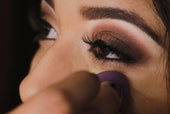
Enhance Your Eyes: A Guide to Eyeliner for Every Eye Shape with Liht Organics
Welcome to the Liht Organics blog, where we believe in celebrating the natural beauty of every eye shape. Today, we'r...
-
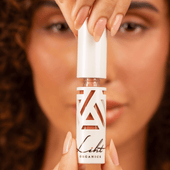
How to do makeup with only lipstick?
At Liht Organics, we believe in the power of clean beauty and the artistry of makeup. Makeup is more than just enhanc...
-

How to Clean Your Makeup Brushes in 6 Simple Steps
Cleaning your makeup brushes may seem like a tedious task, but it's an essential part of your beauty routine. Not onl...
-

Makeup Tips to Help You Look Your Most Flattering on Virtual Meetings!
After more than 2 years of work-from-home arrangement, and possibly hundreds of zoom calls and Google meet virtual me...
-

Learn How to Contour with This Simple Guide for Beginners
Want to take your makeup to the next level? Try contouring to achieve a more defined or sculpted look à la the Kardas...
-
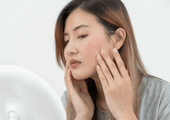
Essential and Easy Makeup Tips for Sensitive Skin
Living with sensitive skin conditions like eczema, psoriasis, and more is already not an easy feat. Throw in makeup t...
-

Raising Your Vibration: A Liht Organics Guide for Empowerment This International Women's Day
wp:paragraph As International Women's Day (IWD) approaches, it serves as a powerful reminder of the journey towards s...
-

The Beauty of Going Bare: Why Sleeping with Makeup is a No-No
Have you ever had one of those nights where you're too tired to clean off your makeup? You might believe, "Skipping...
-

Breast Cancer Awareness: Empower Your Beauty with Liht Organics Makeup
During October, we observe Breast Cancer Awareness Month as a way to unite and bring attention to breast cancer whil...
-

The Hidden Dangers of Carmine in Makeup Colorants: Embracing Healthier and Vegan Options
Makeup has become an integral part of our daily routines, allowing us to express our unique beauty. However, as we pr...
-

How can I ensure that my makeup products are organic and won't harm my skin?
When it comes to makeup, it’s important to be mindful of what you’re putting on your skin. With so many products on t...
-

[FEATURE] HONEYCOMBERS – BEST BEAUTY BUYS IN JULY
by Nicole NithiyahWhat’s hot in our beauty hit list: Honest thoughts and top beauty stories we’re swooning over. As w...
-

Liht Organics Introduces Exclusive Gift Sets: Enhance Your Beauty This Festive Season!
As the holiday season approaches and the year draws to a close, Liht Organics is thrilled to present two enchanting g...
-

Get Spooktacular with the Best Halloween Makeup Ideas using Liht Organics' All-Natural, Vegan, and Cruelty-Free Cosmetics!
With Halloween just around the corner, it’s time to let your creativity shine and transform yourself into a spooky,...
-

Celebrating World Animal Day with Liht Organics: Embracing Natural Cruelty-Free Makeup
wp:paragraph As we observe World Animal Day, the team at Liht Organics takes great pride in honoring our pledge to...
-

Reasons Why You Should Choose Cruelty-Free Cosmetics Instead!
With increasing exposés unveiling the ugly truth behind animal testing that goes on in the beauty industry, it is lit...
-

Celebrate Singles Day with Makeup That Empowers – 22% Off at LIHT Organics!
This Singles Day, treat yourself to beauty that goes beyond skin-deep. At LIHT Organics, we believe makeup is about s...
-

Preparing for the Cozy Beauty of Autumn: A Preview of Your Fall Look
As we bid farewell to the warm, sun-kissed days of summer, it’s never too early to start dreaming about the enchantin...

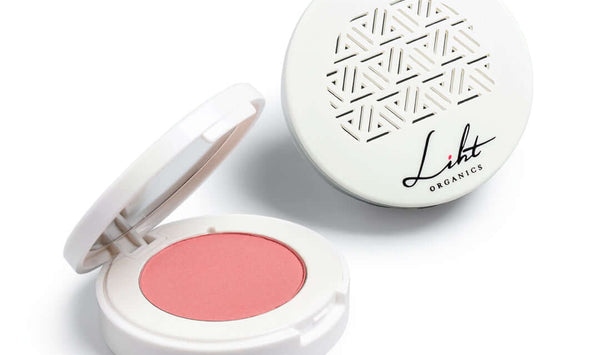
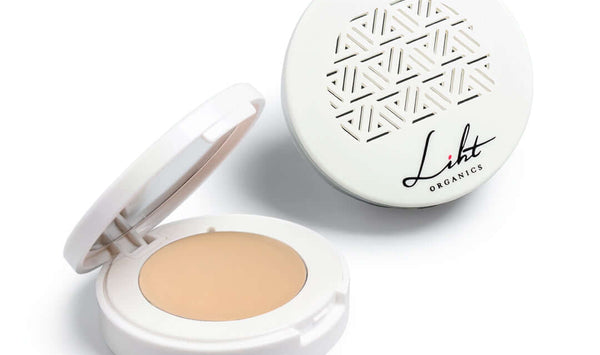
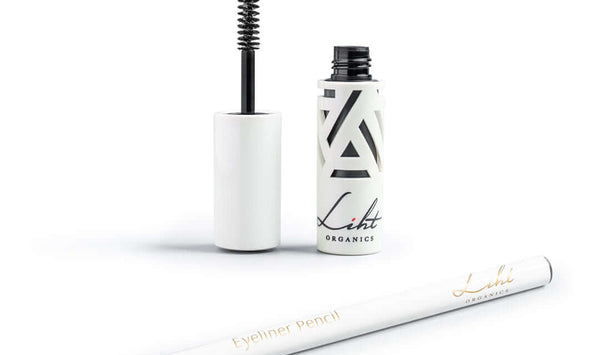
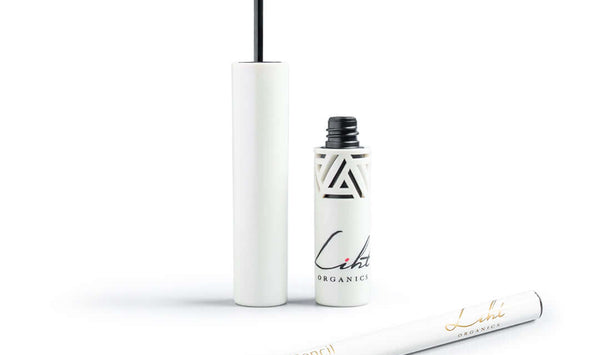
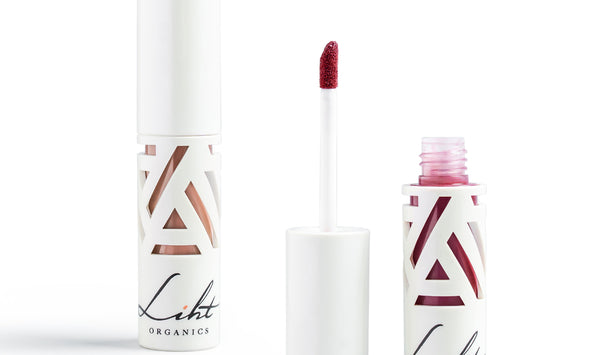
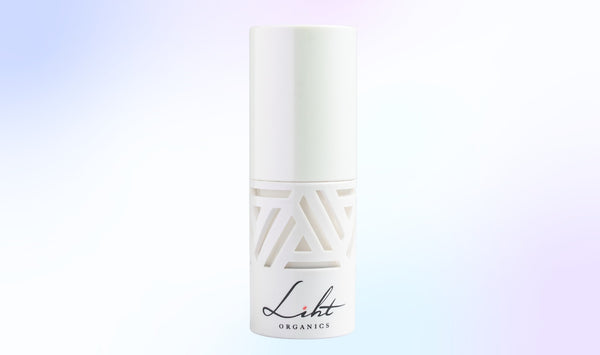

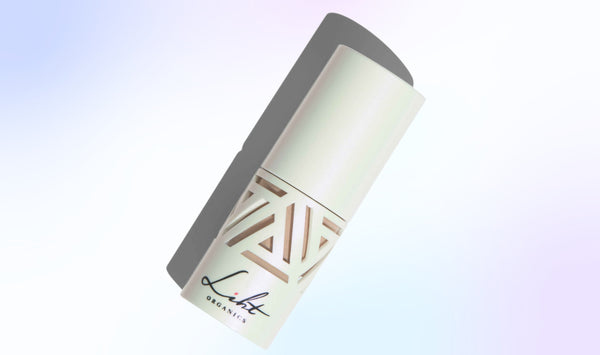
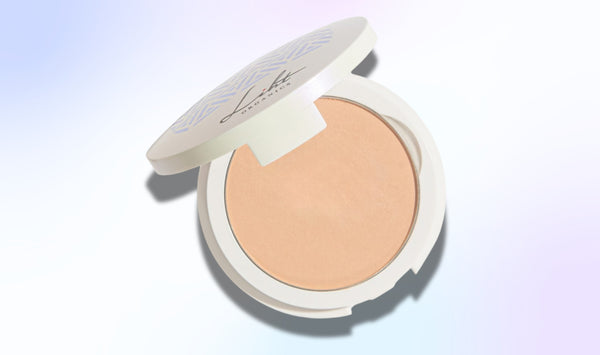
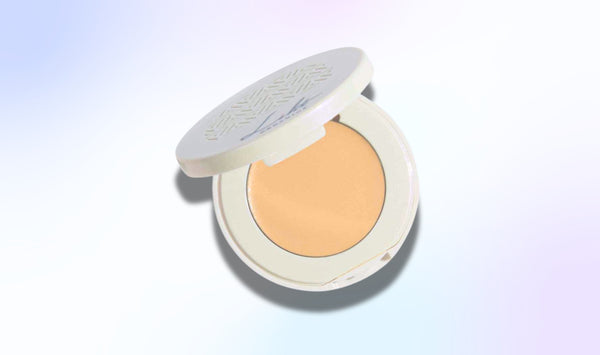
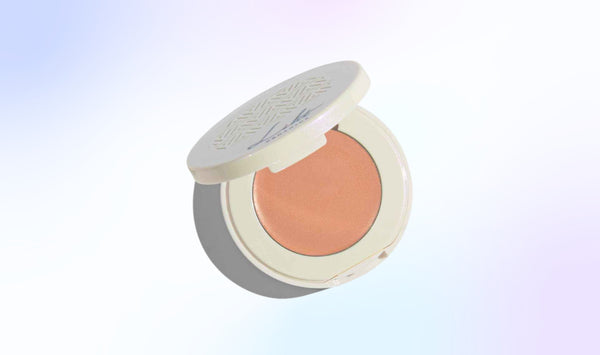
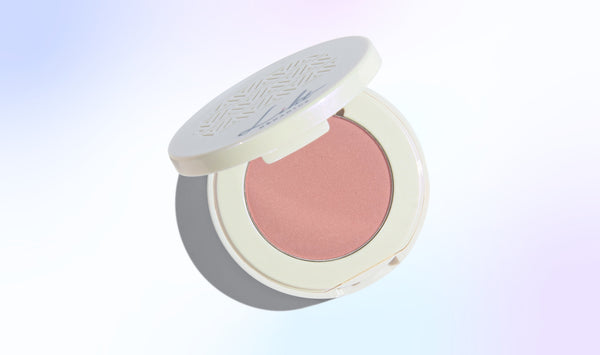
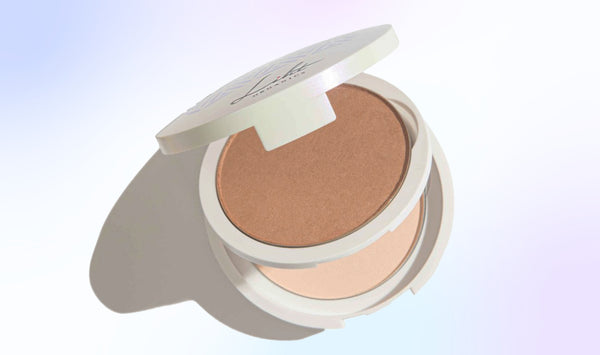
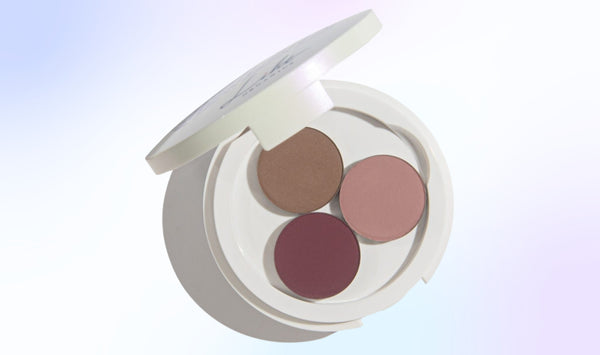
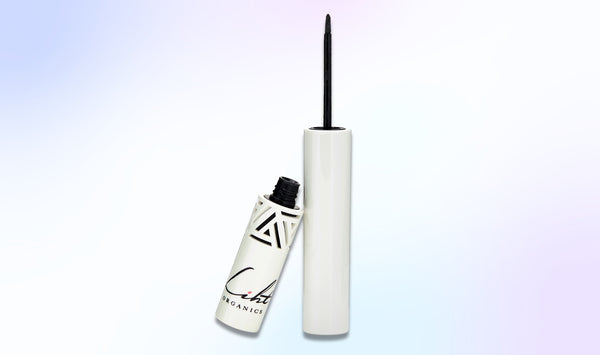
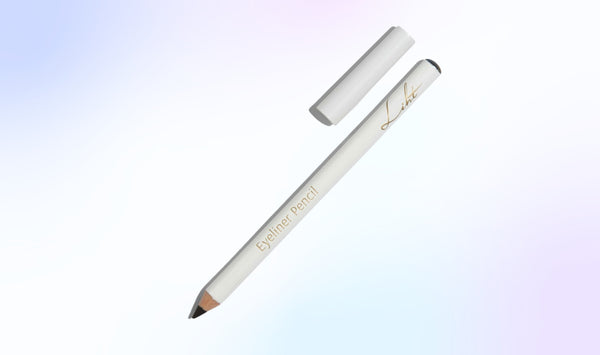
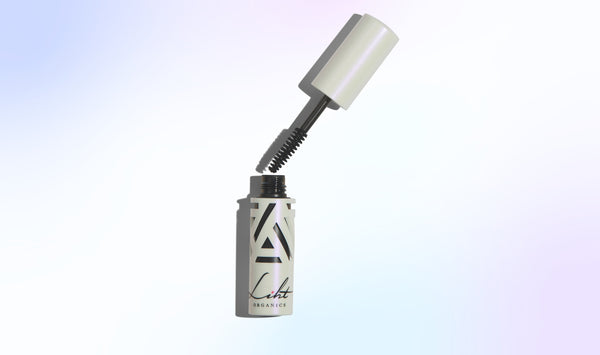
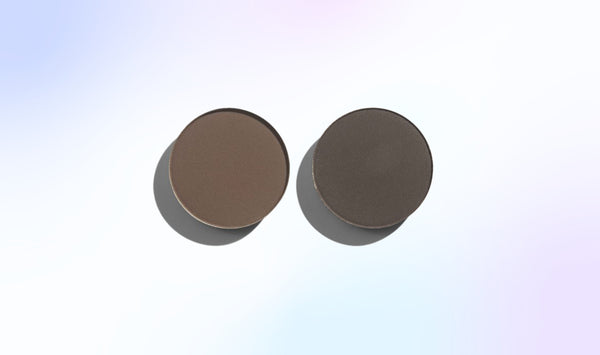
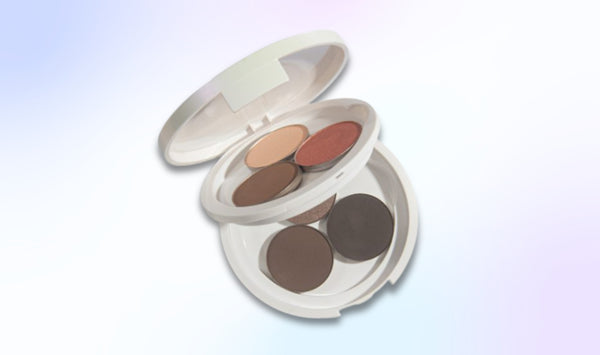
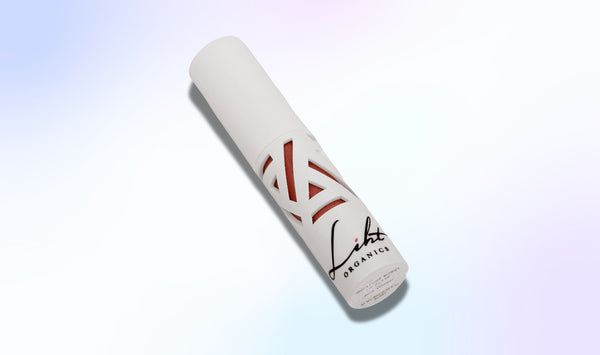
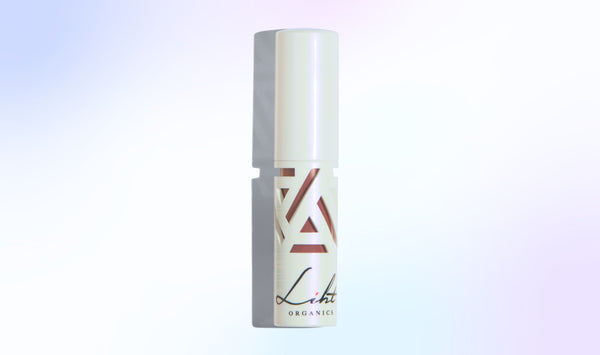
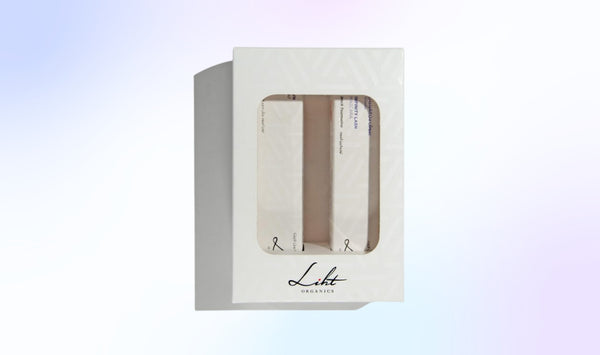
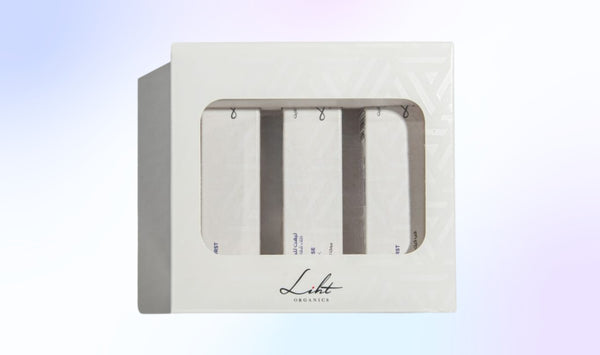


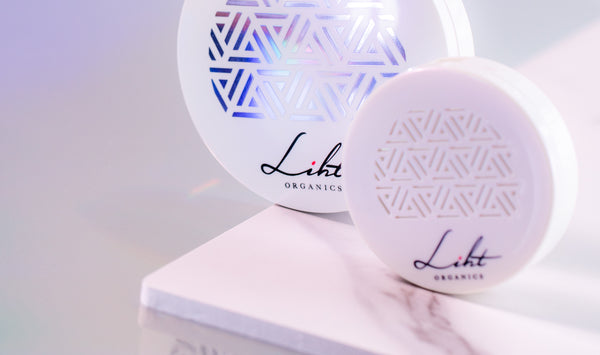
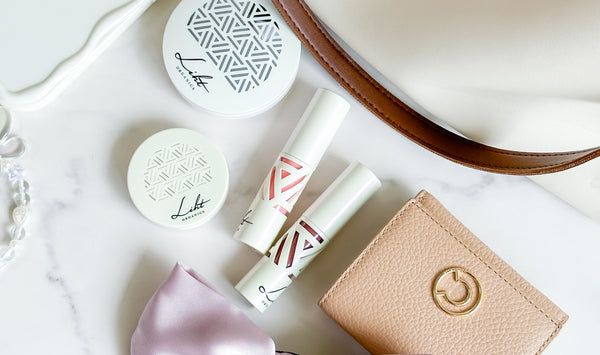
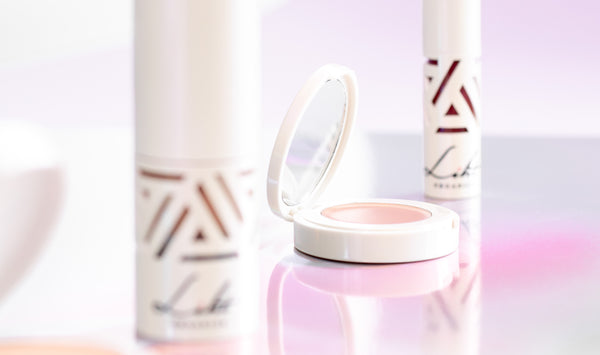




![[FEATURE] Liht Organics to debut at TFWA Asia Pacific show](http://lihtorganics.com/cdn/shop/articles/1_1.png?v=1759328400&width=170)
![[FEATURE] The Singapore-based organic makeup brand is a first-time exhibitor at this year’s TFWA Asia Pacific Exhibition in Singapore in May 2025](http://lihtorganics.com/cdn/shop/articles/2_1.png?v=1759328386&width=170)
![[FEATURE] Travel Retail Awards 2025 finalists - Best Make-up Product Color-Intense Liquid Lipstick – Liht Organics](http://lihtorganics.com/cdn/shop/articles/4_e2f54f0f-fcd1-46e7-9990-fc9d29e35131.png?v=1759328382&width=170)
![[FEATURE] Liht Organics targets expansion in travel retail](http://lihtorganics.com/cdn/shop/articles/3_1.png?v=1759328346&width=170)
































































